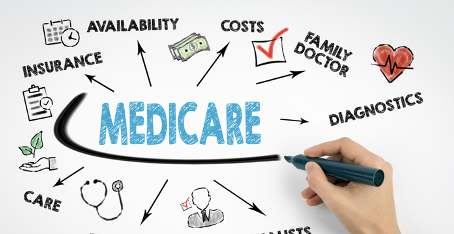Navigating Medicaid, Medicare, and Long-Term Planning: Securing Your Future
In our world of uncertainties, preparing for your financial well-being is a wise step towards a secure future. Medicaid, Medicare, and long-term planning are essential components of this preparation, especially as we age. Understanding the differences, benefits, and strategies associated with each can empower you to make informed decisions that will safeguard your health and finances in the long run.
1 – Deciphering Medicaid and Medicare
Medicaid and Medicare are two integral pillars of the U.S. healthcare system, but they cater to different needs and demographics. Medicaid is designed to assist low-income individuals and families with limited resources, providing coverage for a wide range of medical services. On the other hand, Medicare primarily targets senior citizens aged 65 and above, offering them affordable health insurance options.
2 – Medicare Unveiled
Medicare is further divided into several parts, each addressing distinct aspects of healthcare:
- Part A (Hospital Insurance): Covers inpatient hospital stays, skilled nursing facility care, hospice care, and some home health care.
- Part B (Medical Insurance): Includes outpatient care, doctor’s visits, preventive services, and some home health care.
- Part C (Medicare Advantage): Offered by private insurance companies approved by Medicare, this plan combines coverage from Part A, Part B, and often Part D (prescription drugs) into a single plan.
- Part D (Prescription Drug Coverage): Provides prescription drug coverage through private insurance plans.
3 – Medicaid: A Safety Net for Low-Income Individuals
Medicaid serves as a lifeline for those who are financially disadvantaged. Eligibility criteria vary by state and include income, household size, and specific circumstances. This program covers a broad spectrum of medical services, from doctor visits to long-term care in nursing homes. Understanding your state’s Medicaid policies is crucial in determining your eligibility and the coverage you can receive. Talking with someone who has a lot of experience in
4 – The Importance of Long-Term Planning
Long-term planning is an indispensable part of preparing for your future. As life expectancy increases, the need to consider potential long-term care expenses becomes critical. Long-term care insurance can be a strategic investment, offering coverage for services like assisted living, nursing home care, and home health care that are often not covered by traditional health insurance plans. By planning early, you can mitigate the financial burden that long-term care can place on your savings.
5 – Strategies for Effective Long-Term Planning
a. Start Early: The earlier you begin planning, the more time you have to build your resources and explore suitable insurance options.
b. Assess Your Needs: Evaluate your current health, family medical history, and financial situation to determine the level of coverage you might require.
c. Explore Insurance Options: Research various long-term care insurance policies to find one that aligns with your needs and budget.
d. Consider Hybrid Policies: Some insurance products combine life insurance or annuities with long-term care coverage, offering flexibility and additional benefits.
e. Estate Planning: Create a comprehensive estate plan that includes wills, trusts, and advance healthcare directives to ensure your wishes are upheld.
Conclusion
In a world where health and finances are intricately intertwined, understanding the nuances of Medicaid, Medicare, and long-term planning is a necessity. These tools offer a safety net for both the present and the future, providing a sense of security and peace of mind. By working with a knowledgeable fiduciary, like Retirement Solutions Group, about these programs and adopting effective long-term planning strategies, you can navigate the complexities of healthcare and retirement with confidence, ensuring a well-deserved and comfortable life ahead. Remember, preparation today guarantees a brighter tomorrow.
Debbi Marcum and Retirement Solutions Group have been working to navigate the world of Medicaid, Medicare, and long-term planning for decades. We offer a no-cost and no obligation consultation to assess your needs.
